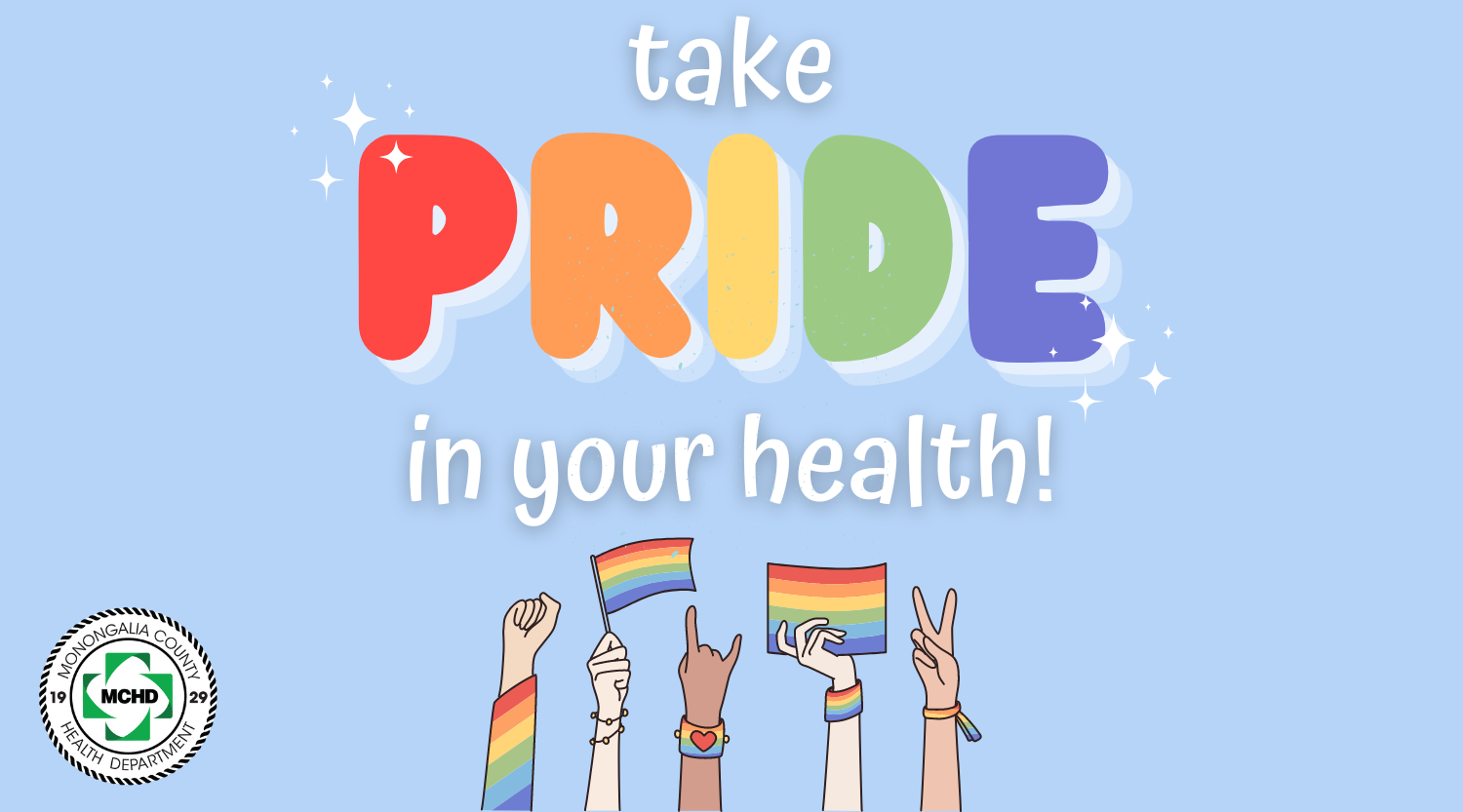Take PRIDE in your health!

Jun. 1, 2023
By Katie Minor
Back in June of 1970, something big happened in New York City—the first ever Pride March took place. It was a lively celebration marking the one-year anniversary of the Stonewall Uprising, a pivotal moment for the gay liberation movement in the United States.
Today is the first day of Pride Month, and in 2023 we are embracing the rich history of the lesbian, gay, bisexual, and transgender liberation movement.
Pride Month has evolved into a series of vibrant festivities, filled with parties and dazzling drag shows. Many cities now host their own Pride Marches, reminiscent of the one held over fifty years ago in New York City.
However, Pride is not merely a grand party. It presents an invaluable opportunity to connect with LGBTQ+ liberation's historical roots, acknowledge the progress we've made, and strive for further justice within the community.
While LGBTQ+ history spans many years and is complex, the HIV/AIDS epidemic stands out as a significant event that thrust LGBTQ+ individuals into the public eye.
In 2023, we are no strangers to pandemics. But back in the 1980s and ‘90s, the AIDS crisis created what felt like a private pandemic for the gay community—a community already grappling with intense violence and stigmatization.
The CDC officially reported human immunodeficiency virus (HIV) and acquired immunodeficiency syndrome (AIDS) in 1982. However, the disease had already begun spreading in the United States by then.
What made AIDS distinct from other illnesses was its seemingly targeted impact on the LGBTQ+ community, particularly affecting people of color. It was referred to by some as the "gay plague."
In those times, it seemed as if no one took AIDS seriously. While gay individuals attended countless funerals for their friends, President Ronald Reagan's press secretary, Larry Speakes, even laughed when asked about AIDS in 1982. It wasn't until 1985, when approximately 15,000 lives had already been lost to AIDS, that Reagan himself mentioned the word "AIDS."
Frustrated with government silence, AIDS activists founded the AIDS Coalition to Unleash Power (ACT UP) in 1987. Through protests and other forms of activism, ACT UP pushed for a swifter government response to the epidemic, faster testing and treatment for experimental drugs that held promise in saving lives. They also succeeded in bringing public attention to AIDS, a feat that government and health organizations had struggled to achieve.
ACT UP demonstrated the beautiful solidarity within the LGBTQ+ community. While AIDS primarily affected gay men and transgender women, ACT UP consisted largely of lesbian women. Moreover, lesbian women were at the forefront of caring for individuals suffering from AIDS, even when health facilities hesitated to treat AIDS patients.
It is crucial to recognize the immense loss of life during that tragic era. If not for the epidemic, an entire generation of LGBTQ+ individuals might have been here today, celebrating Pride with us. The lack of public health response to the AIDS crisis remains a somber moment in history. As public health workers, we acknowledge this and strive to eliminate all health disparities, including those among the LGBTQ+ community.
While there is not yet a vaccine that will prevent HIV, treatments have come a long way. Currently, more than a million people in the U.S. are living with HIV. Monongalia County Health Department Clinical Services offers free HIV screening and treatment (https://www.monchd.org/std-and-hiv.html) to anyone who needs it.
There are other health disparities faced by the LGBTQ+ community, often stemming from societal stigma and discrimination. For example:
LGBTQ+ youth are more likely to attempt suicide.
LGBTQ+ youth are more likely to be homeless.
Drug and alcohol use is higher in the LGBTQ+ community.
Many LGBTQ+ people avoid health care because of the lack of cultural awareness by some providers. (Source: https://www.healthypeople.gov/2020/topics-objectives/topic/lesbian-gay-bisexual-and-transgender-health)
While LGBTQ+ rights have come a long way, these lingering health disparities show that our work is not done yet.
Show your appreciation for LGBTQ+ trail blazers like ACT UP by taking pride in your own health! At Monongalia County Health Department, our nurses are Safe Zone-trained by the WVU LBGTQ+ Center so everyone, regardless of gender identity and sexuality, are treated with respect, kindness, and understanding.
Need free, confidential STI testing? Birth control and other reproductive health services? Education about health services for the LGBTQ+ community in Monongalia County? MCHD is a great place to go for all of these services without any judgment from our friendly, in-the-know nurses. Make an appointment by calling 304-598-5119.